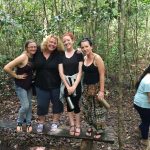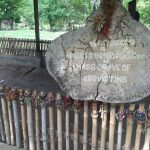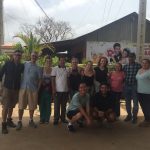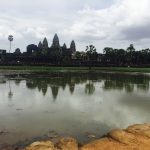Falling in Love with Cambodia and Erasmus
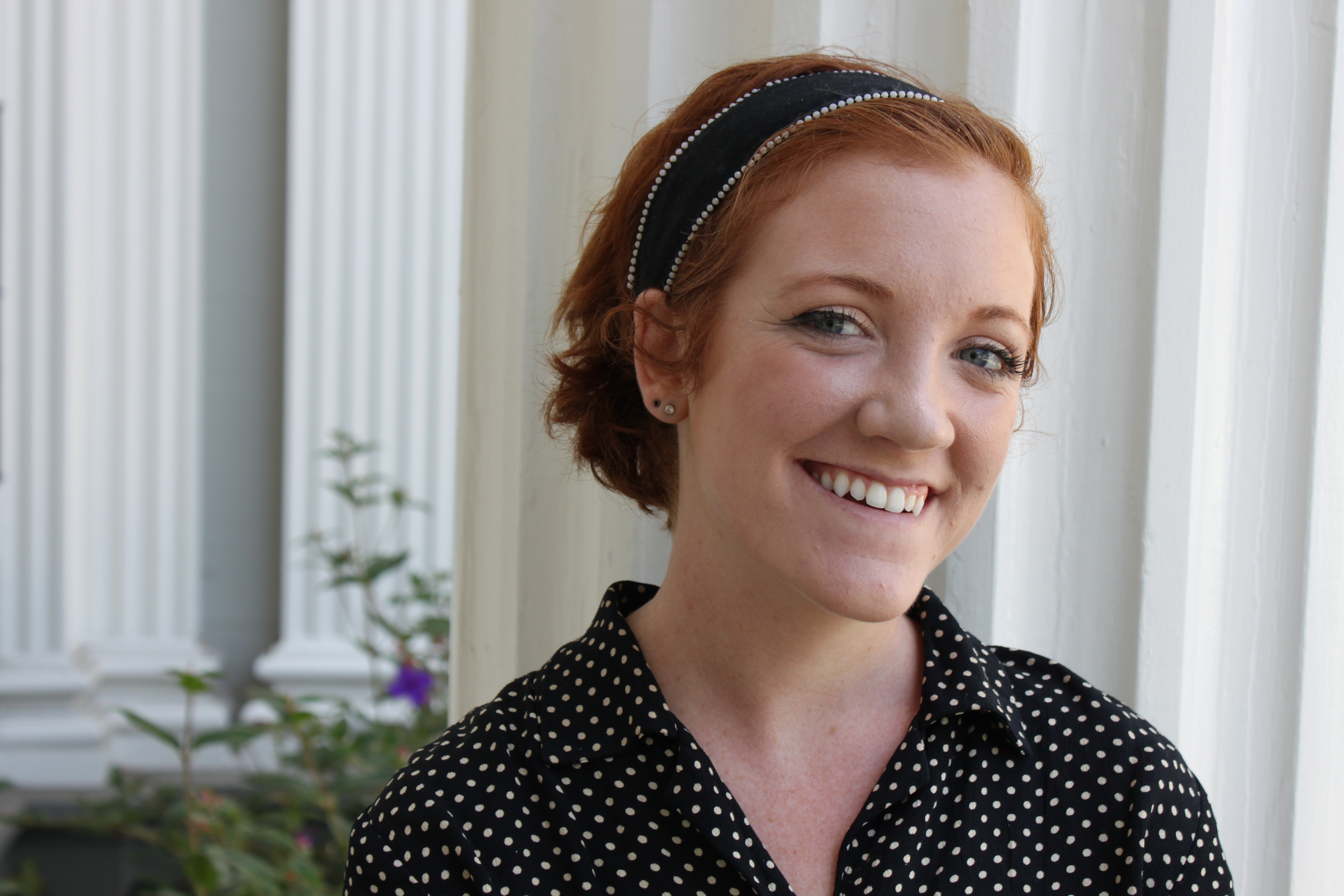
Bayli Tucker, Advocate for Community Engagement (ACE)
Sociology ’16
“Be careful because Cambodia is the most dangerous country you will ever visit. You will fall in love with it and eventually it will break your heart.” – Joseph Mussomeli, former US Ambassador to Cambodia
Erasmus, the living learning community is the hidden gem of USF. Very few people know of the class or the community, and those that do tend to have a difficult time describing in full what it is: students in a community that explores ethics, service, and justice at local and global levels. True to it’s identity, Erasmus completes its year by going to the hidden gem of Southeast Asia, Cambodia. I went on the 2016 trip to Cambodia as as Advocate for Engagement working with the 2nd and 3rd year undergraduate students in Erasmus.
The Erasmus students, myself included spent an entire year studying ethics and service, marginalization and displacement, as well as a comprehensive, encompassing look at Cambodia itself. Throughout the year we reflected on the many challenges that the communities we are serving face and even the challenges that we as service-learners might face. These dialogues brought us closer as a community.
We visited multiple non-profits each day that cover issues from environmental degradation, human trafficking, and even the tribunals happening right now in the country. The trip is intense but in the best possible way. Each day we encountered a new challenge and came out stronger on the other side. Cambodia is a country that has seen terrible things within the last forty years but it is so much more than that. The people are the kindest I have ever met while traveling and the environment is familiar like home.
After roughly twenty-three hours of travel, and multiple airports, I was ready to be outside and on the ground. I expected a lot to have changed in a year since I was last here, but I was surprised when our plane was shuttled to an airport that was spacious with marble floors and air conditioning.
Outside, my Professor Lois Lorenzon arrived to pick me up and take me back to where we would be staying in Siem Reap for the next five days. That night we were greeted by our guides Boreth, Soren, and Thiera. These three individuals were with us for most of the trip. They helped round out our experience by challenging us to get out of our comfort zone and enter somebody else’s.
The city of Siem Reap was once the capital of the country and now it is filled with mostly resorts and is more of a tourist destination.
The first day we spent in Siem Reap, we went to Angkor Wat. Our guide was well versed in the historical context of each temple and made the cultural day fun and interesting. We visited three different forest communities near Siem Reap. Each one was unique and remarkable in its own way. The issues that they are facing are not unlike the issues faced by the many communities that Erasmus serves. Poverty, climate change, lack of resources, and deforestation aren’t social justice issues found solely in one part of the world or another.
While in Siem Reap, we also visited the Jesuit Center and met with the JVC volunteer, as well as a man who had won the Nobel Peace Prize for his efforts in de-mining Cambodia. He talked to us about the importance of de-mining our hearts before we can ever truly eliminate all of the mines in the world, and create peace.
The group spent only one night in the more rural province of Kompong Thom, and on one afternoon, another Erasmus student and I took a walk. We came across a wedding happening in a tent right in the middle of the road. There were over a hundred people in their best and most beautiful attire. Everything was brightly adorned with silk and flowers. Later that night, the two of us and the rest of the group went on another walk and passed the wedding reception slowly. As we passed a man, who we later discovered was the father of the bride, he motioned for us to come inside and join them. Although we acted hesitant, this is exactly what we were all hoping for. The bride and her family linked arms with us and brought us all onto the dance floor. At one point two of us were brought to the bride’s table and given food. We met her entire family and listened to her father tell us how proud he was of her and how much he loved his country. This was the most unreal moment of the trip. We danced for hours with people staring at us. Eventually we did go home, but not without a flower for each of us from the bride’s bouquet, given to us by the bride herself.
We made our way to Phnom Penh, which is presently the capital city. On our first official day we took on the historic sites of S-21 and the Killing Fields.
These two museums are intense but necessary. The experiences of the people who are guiding us through are terrible, but we have so much to learn from them. The next day, we went to the Extraordinary Chambers in Court of Cambodia (ECCC) which are the tribunals working on Case 002. The day that we went was pretrial, but we did learn that the man in charge of S-21 was going to be testifying in only a matter of days. Afterward we met with members from all three parties working on the case and the tribunals. Later we went to the Documentation Center which is responsible for supplying the courts with all of the necessary documents from during the Khmer Rouge regime.
Finally, we visited a village that was populated by individuals who had been removed from their neighborhoods in Phnom Penh, to make room for a shopping center. This is not unlike what we regularly see in San Francisco. Then I felt like I blinked and suddenly I was sitting in a circle on a boat with the rest of the Erasmus students and all of our guides. We watched the sun set along the Mekong River and said our goodbyes to the people and country we had grown so close to. At the end of the night we went back to Phnom Penh and in the morning we would all go our separate ways.
Cambodia’s Curse is true—you do have to “be careful because Cambodia is the most dangerous country you will ever visit. One does fall in love with it and it does break one’s heart.” Anyone who goes to Cambodia will fall in love with the country, all of its history, even the darker parts, and all of its people. But I have to say, not only did I fall even more in love with Cambodia, I fell in even more love with Erasmus. This class has taught me and many others to ask questions, and to dialogue with another to find answers and solutions. As the ACE for the class, I feel proud to have been apart of this process and to watch others embark upon it.





